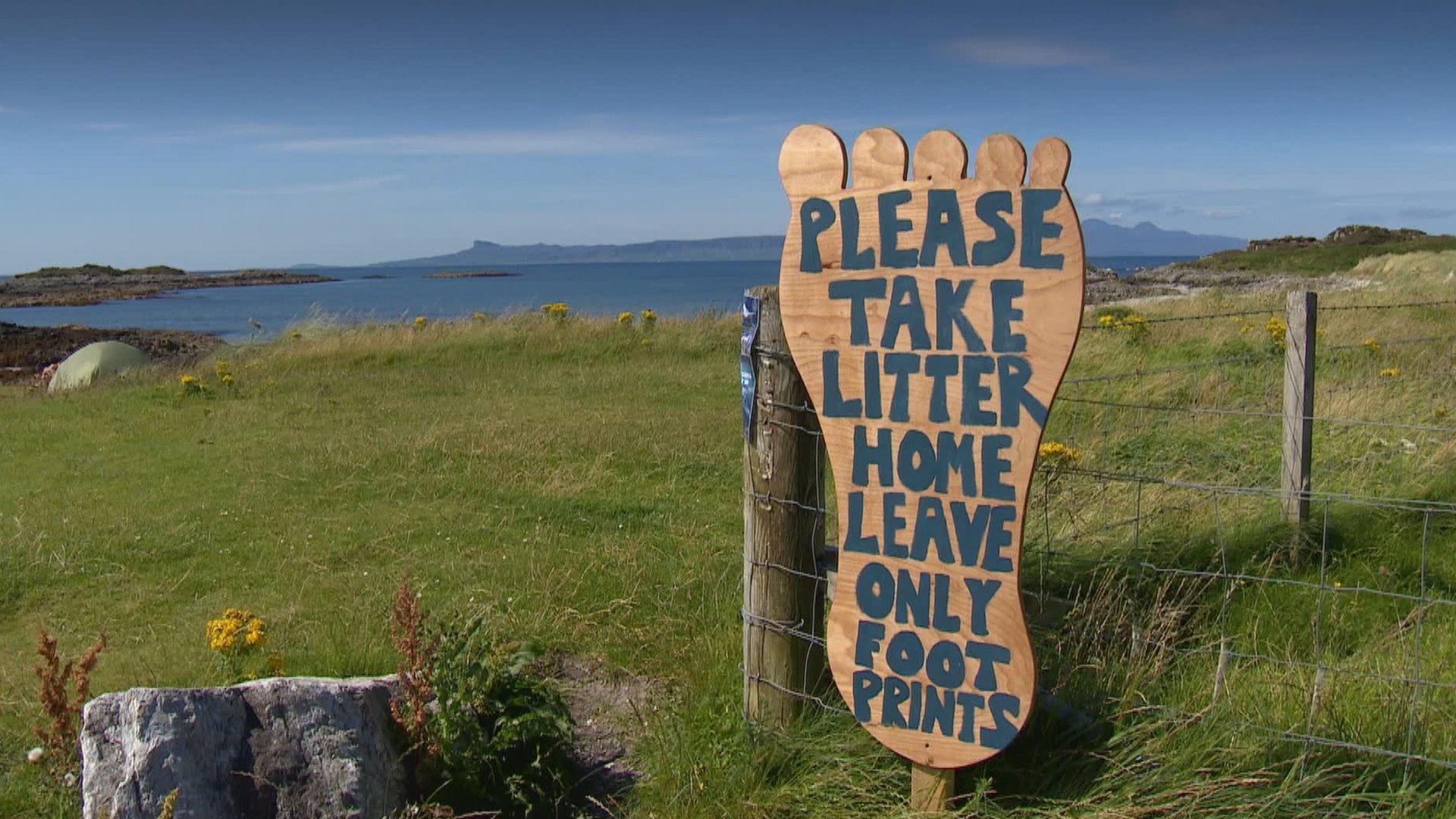Covid in Scotland: Preparations and nerves as Scotland's travel rule eased
- Published
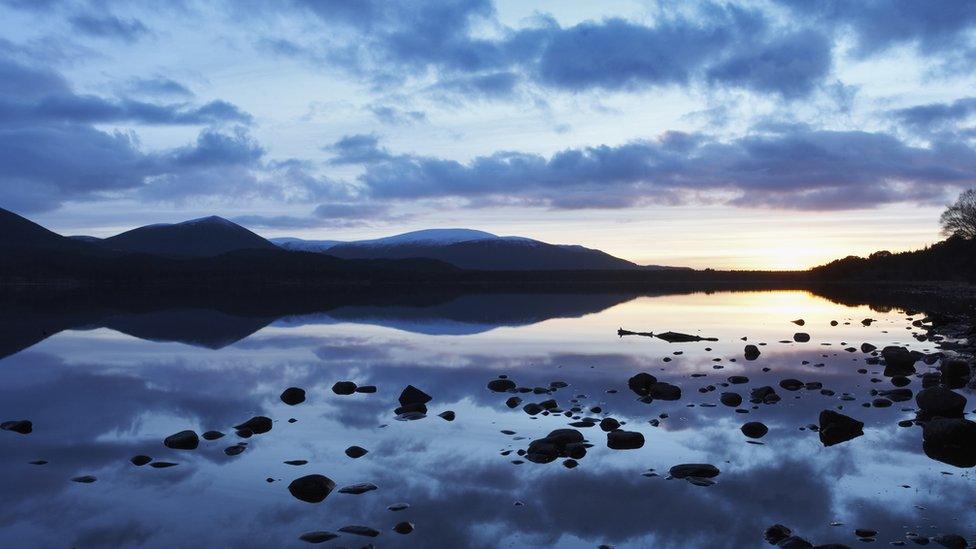
The Cairngorms National Park was a popular destination for daytrippers and staycationers last year
Rural communities are expecting an influx of visitors following a relaxation of the Covid-19 restriction on travelling around Scotland.
Anne Widdop of the Scottish Tourism Action Group (Stag) campaign said people would be warmly welcomed back, and local economies needed the boost.
But she said there was also some "nervousness" in communities "from Caithness to the Borders".
Last year, there were parking and litter problems at tourist "hotspots".
From Friday, people can travel across Scotland, but cannot stay away from home overnight.
Travel rules and other Covid restrictions are to be further relaxed on 26 April, including limits on travel from Scotland to other parts of the UK.
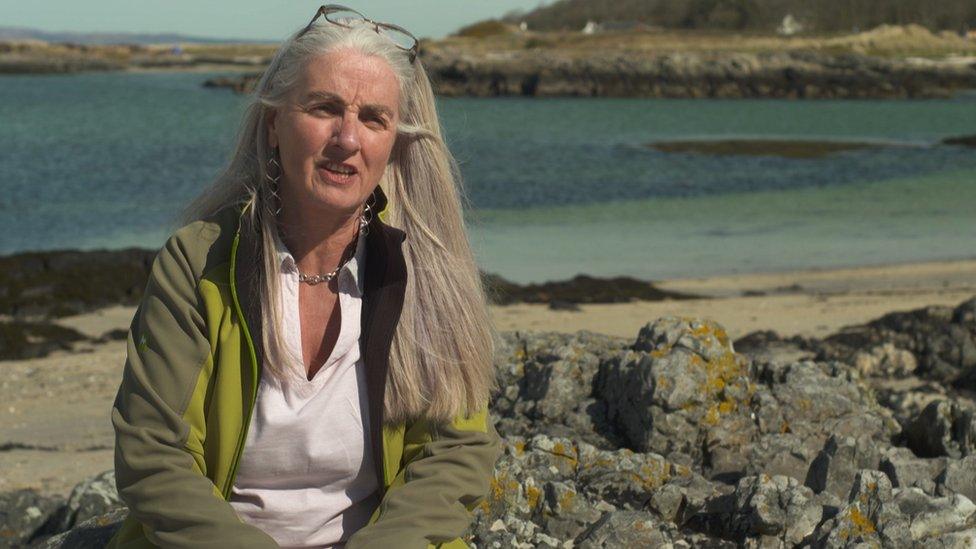
Campaigner Anne Widdop said communities from Caithness to the Scottish Borders were preparing for visitors
Following the end of lockdown last year, the Highlands experienced "unprecedented" levels of tourism over the summer, according Highland Council.
Travel restrictions had been relaxed but hotels and campsites, public toilets remained closed due concerns about the spread of Covid-19.
Ms Widdop, who lives in Arisaig in Lochaber - a popular destination in Lochaber post-lockdown last year - said some new infrastructure such as a composting public toilet had been put in place for this year to try and help better cater for visitors.
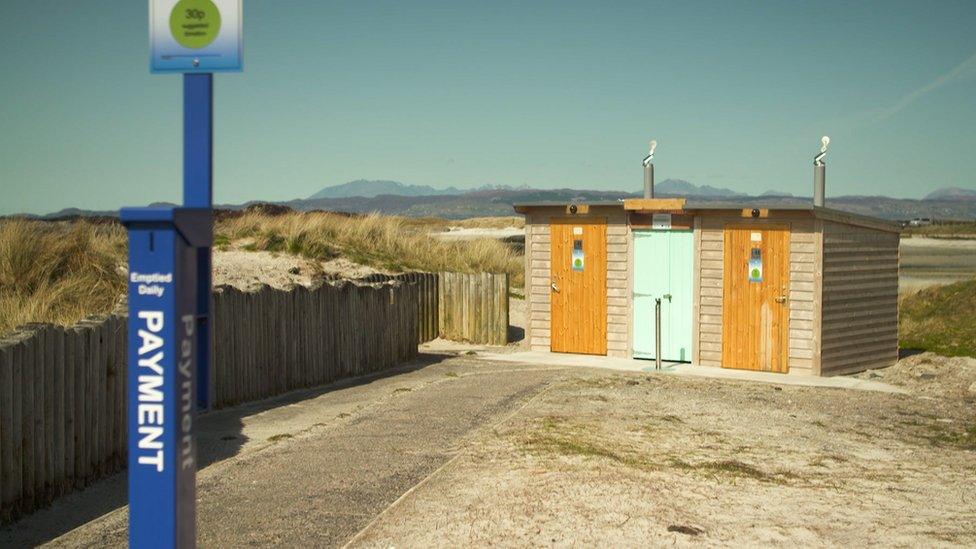
Facilities added for this year's visitors to Lochaber include composting toilets
But she said many communities across Scotland still lacked enough facilities to cope with large numbers of visitors.
She said: "We are really looking forward to welcoming tourists back.
"But there is real nervousness as well about seeing some of the problems we saw last year."
The problems included parking on road verges, outdoor toileting and camping on a nearby beach.
Ms Widdop said: "If people come to the area they should have a plan for where they are going to stay, and have a plan B as well. They can't expect to rock up and camp wherever they want."
Dirty camping
The Cairngorms National Park was another popular destination for visitors post-lockdown last year.
It is the UK's largest national park and its 1,748 sq mile (4,528 sq km) area includes parts of the Highlands, Aberdeenshire, Angus, Moray and Perthshire.
But in 2020 a few hotspots, including Loch Morlich near Aviemore and parts of Deeside in Aberdeenshire, had issues with overcrowding and dirty camping - abandoned, litter-filled unofficial campsites.
Revellers even left rubbish, fires and human waste after holding a "disco party" in Glen Doll in Angus.
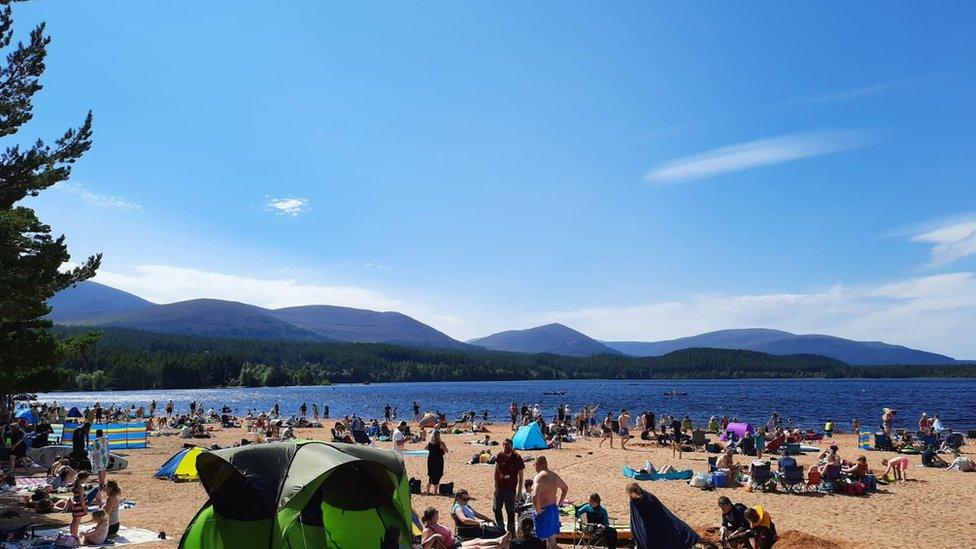
Loch Morlich was a visitor hotspot over the summer last year
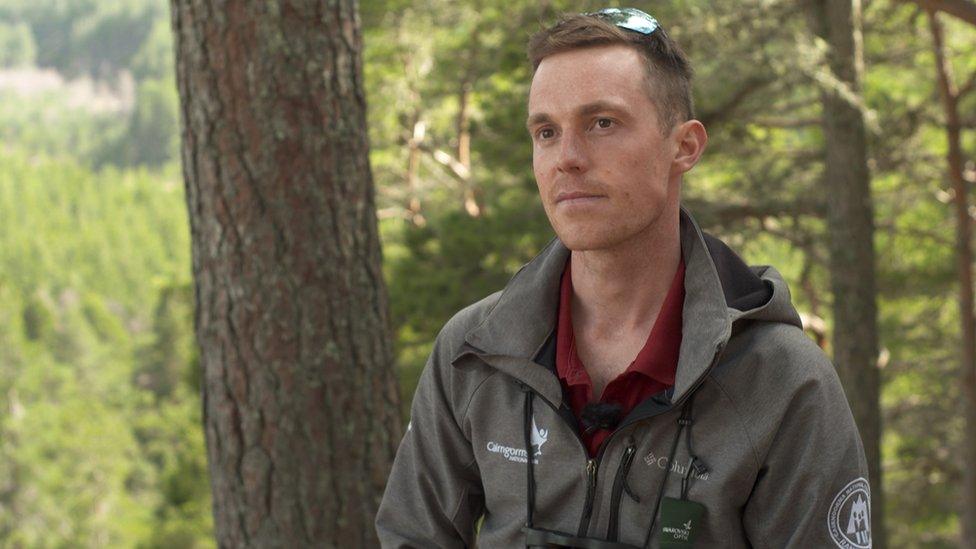
Ranger Pete Short said the Cairngorms would give visitors a warm welcome
Cairngorms National Park Authority ranger Pete Short said most visitors to the park acted responsibly and only a small minority were behind the anti-social behaviour.
He said more rangers would be patrolling the park and supporting communities and visitors this year.
"Our first message to visitors is a very warm welcome," said Mr Short, adding that other advice included planning ahead to check where facilities such as public toilets were open and respecting the environment.
Rangers will also offer visitor information on where to find paths and trails and where and how to spot wildlife.
"We're here to inspire people with a love of nature and hopefully we will be able to do that," said Mr Short.
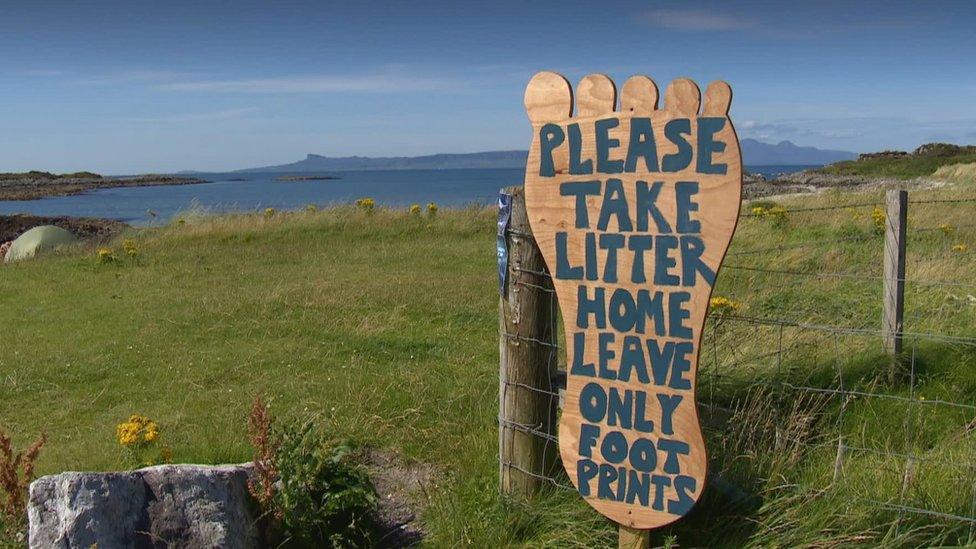
A sign in Lochaber last summer appealing to visitors to look after the environment
From Friday, many people are also expected to head for Scotland's hills and mountains.
Kev Mitchell, of Scottish Mountain Rescue (SMR), said rescue teams were looking forward to seeing people back enjoying the hills.
But he urged visitors, particularly those new to hillwalking, to plan their trips carefully. Post-lockdown last year SMR saw a 37% rise in rescue call-outs.
'Leave no trace'
Mr Mitchell said: "What we'd say to people is take it easy, have a good day, be prepared, check weather forecasts.
"If some places are really busy have a plan B and go somewhere else, or just wait to go another weekend or maybe mid-week.
"The mountains and hills will still be there."
Highlands and Islands divisional commander Ch Supt Conrad Trickett thanked the "vast majority" of people who he said had been sticking the rules to suppress the spread of coronavirus.
"The sacrifices people have made have allowed some restrictions around travel and gatherings to be eased from Friday", he said.
"We are going to see increased traffic on our roads and if you are visiting beauty spots then I would urge you to please do so safely and respectfully - leaving no trace of your visit."


Related topics
- Published21 September 2020
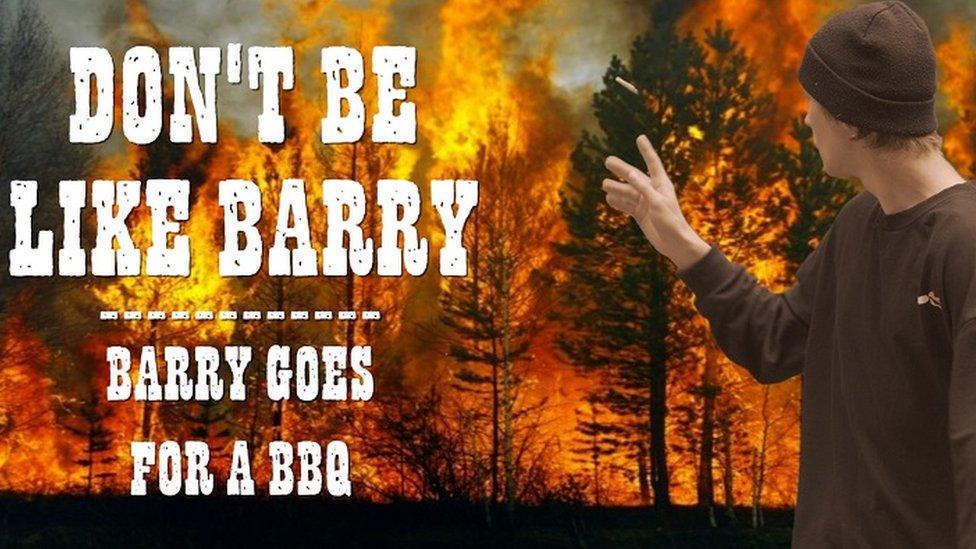
- Published7 September 2020
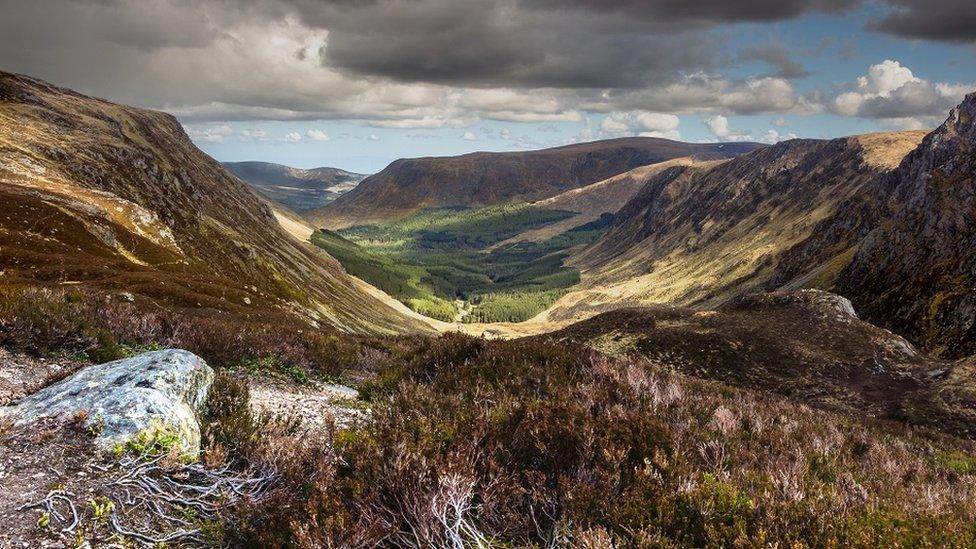
- Published8 August 2020
